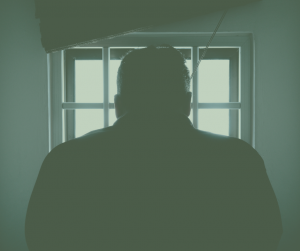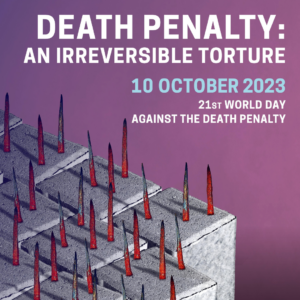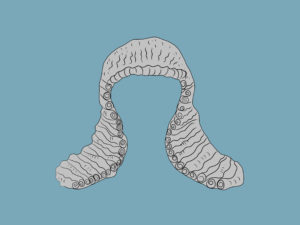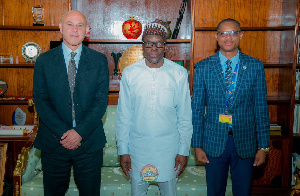
A punishment reserved for the poor and marginalised? New study shines light on the profiles and experiences of death row inmates in Bangladesh
- News
- 29 Mar 2022
New research conducted by the University of Dhaka, supported by Bangladesh Legal Aid and Services Trust (BLAST) and The Death Penalty Project (DPP) has revealed that the death penalty is being disproportionally applied to the poorest and most marginalised members of Bangladeshi society.
The study, Living Under Sentence of Death, the first empirical research of its kind in Bangladesh, set out to investigate the profiles, experiences and perspectives of death row prisoners.
The research provides insights into the socio-economic backgrounds of those sentenced to death. Almost all the prisoners in the study were young men from low-income backgrounds. The vast majority had very low levels of education. Most were classified as economically vulnerable, with none from wealthy families.
- 87% of prisoners surveyed had not attended school beyond secondary school level (past the age of 14)
- 15% had no formal education at all
- 72% were classified as ‘economically vulnerable’
- 53% of prisoners were in low-paid work or unemployed
- 74% of the prisoners were under the age of 30 at the time of their offence
- 74% had no previous criminal convictions or criminal records.
The findings reveal the adverse impact on prisoners’ families. Over half were married at the time of their offence and 33% had children. Nearly a quarter of the prisoners had generated the sole income for their family – leaving them without a reliable source of income. All suffered extreme financial difficulties as a result – 56% of prisoners’ families could not afford to visit their relatives in prison. Yet despite their precarious financial situations, most families chose to pay for private legal representation. The findings also reveal that stigmatisation and intimidation of relatives is a pressing issue.
Of grave concern, were allegations that torture had been used by the police to extract a confession. 33% of prisoners’ families claimed that their relatives had been tortured whilst in police custody.
Most respondents (60%) were not satisfied with the trial process with many expressing views that the trial courts had failed to properly appreciate the evidence.
The total length of time that prisoners spend under sentence of death in isolation on death row was another worrying finding. From the filing of the case to disposal by the High Court took more than 10 years in almost half of the cases. In one case, a prisoner spent more than 16 years and eight months on death row until the conclusion of the appellate process.
Saul Lehrfreund, Co-Executive Director of The Death Penalty Project said:
“We have seen from comparable studies conducted in other countries it is predominantly the most economically and socially marginalised members of society who are subjected to the death penalty. This report indicates this is also true of Bangladesh. The findings suggest a distinct likelihood that miscarriages of justice will and do occur. While such concerns exist, the legitimacy of the death penalty must be called into question.”
Notes to editors
The report: Living under sentence of death
Inspired by similar studies from other countries, a pilot study was commissioned to examine the demographics and experiences of those sentenced to death.
The study looked at a sample of 39 individuals on death row. It draws evidence from their case files and face-to-face interviews with their families, conducted under rigorous ethical guidelines.
Despite its small size, the sample is indicative of the general prison population, allowing us to draw conclusions on possible trends.
Death Penalty Project
The Death Penalty Project (DPP) is a legal action NGO with special consultative status before the United Nations Economic and Social Council. For more than three decades, the DPP has worked to protect the rights of those facing the death penalty.
For interview requests, quotes or more information please contact Joey Greene, Death Penalty Project, Communications Lead, 020 3206 2849 or [email protected]
University of Dhaka
University of Dhaka (also known as Dhaka University or DU) is the oldest university in Bangladesh. Today, it is the largest public research university in Bangladesh, with a student body of 37,018 and a faculty of 1,992. It was identified by AsiaWeek as one of the top 100 universities in Asia.
BLAST
BLAST is one of the largest legal services organisations in Bangladesh, operating in over nineteen districts. BLAST has certain unique features as a legal services organisation. First, it assists both women and men. Second, it undertakes extensive criminal defence work and has a considerable specialisation in labour law, in addition to expertise on family and land law. BLAST is the only NGO able to provide access to legal aid across the spectrum from the frontlines of the formal justice system to the apex court.
Death penalty in Bangladesh
Bangladesh retains and continues to use the death penalty as a punishment. Contrary to international law, twenty-five of the 33 crimes which carry the death penalty in Bangladesh are non-lethal, including rape, which became a capital offence in April of last year.
At least 90 people have been executed in Bangladesh in the past 20 years, a far greater number than in its more populous neighbour India, but significantly less than in Pakistan. At least 1,650 people are currently on death row.
Death penalty around the world
In 1971, the United Nations General Assembly set the goal to achieve the universal abolition of the death penalty. Over the last four decades the number of countries to have abolished the death penalty continues to increase, and those that regularly execute find themselves in a small minority. Today, 109 of the 193 UN member states have removed the death penalty from their statute books completely, with a further 8 countries having abolished the death penalty for ordinary offences. Most recently, in April of this year, Malawi abolished the death penalty. Currently 49 countries are regarded as abolitionist de facto, having not carried out an execution within the past 10 years, and only 27 UN member states are active retentionists. Indeed, the vast majority of executions are undertaken by a small subset of nations: at least 88% of global executions in 2020 occurred in, Iran, Egypt, Iraq and Saudi Arabia.*
*Thousands of executions are thought to be carried out in China each year, but this information continues to be kept a state secret and is unverified.




















